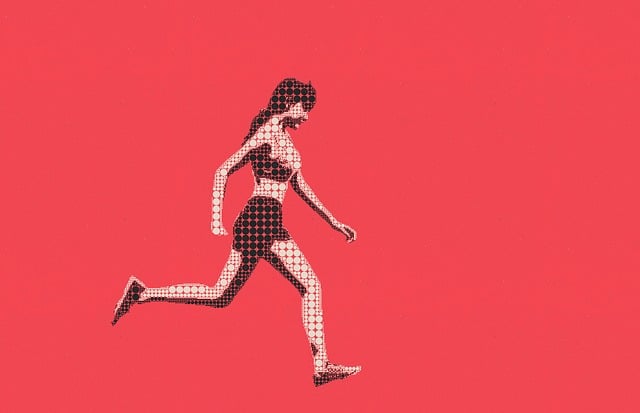While Kratom is popular among athletes for its purported performance-enhancing effects, recent research links its use to unexpected hair loss. Despite claims of energy and endurance boosts, Kratom's hormonal and stress response mechanisms may contribute to thinning or loss. To maintain peak physical conditioning, athletes should adopt a holistic approach that includes proper hydration, nutrition, stress management through mindfulness practices like yoga or meditation, and regular blood work monitoring. Understanding why does kratom cause hair loss is essential for athletes considering this supplement, enabling them to make informed decisions while prioritizing both performance and overall wellness.
In pursuit of peak physical conditioning, athletes constantly seek innovative support methods. This article delves into three crucial aspects of athletic performance enhancement. We explore the impact of Kratom on physical conditioning, offering insights into its benefits and potential drawbacks, such as why it may contribute to hair loss. Additionally, we provide a comprehensive guide to athletic performance support and reveal effective strategies for addressing health concerns like hair loss, ensuring athletes can achieve optimal fitness goals.
- Unraveling the Connection: Exploring Kratom's Impact on Physical Conditioning
- Athletic Performance Support: A Comprehensive Approach to Fitness
- Strategies for Optimal Health: Addressing Hair Loss and Beyond
Unraveling the Connection: Exploring Kratom's Impact on Physical Conditioning

Kratom, a natural herb with a growing popularity in athletic circles, has sparked curiosity for its potential effects on physical conditioning. While many athletes explore unconventional methods to enhance performance, understanding the connection between kratom and fitness is essential, especially when considering its impact on overall health. This herb has gained attention for its stimulatory properties, believed to boost energy levels and endurance during workouts.
However, delving deeper into the research reveals a complex picture. Contrary to the notion that kratom supports physical conditioning, some studies suggest it may contribute to hair loss, raising concerns among athletes. The mechanism behind this effect is not fully understood, but it highlights the importance of thorough investigation before adopting any substance for performance improvement. Why does kratom cause hair loss remains a question that demands further exploration to ensure athletes make informed decisions regarding their physical conditioning strategies.
Athletic Performance Support: A Comprehensive Approach to Fitness

Athletic Performance Support encompasses a holistic strategy designed to optimize physical conditioning and enhance athletic prowess. It goes beyond traditional exercise routines by integrating various components crucial for peak performance. This includes proper nutrition tailored to individual needs, ensuring athletes fuel their bodies efficiently. Additionally, recovery techniques such as adequate sleep, hydration, and innovative treatments like kratom (which, contrary to some beliefs, does not cause hair loss when used responsibly) play a significant role in repairing and regenerating muscle tissue faster.
The comprehensive approach also involves mental conditioning through mindfulness practices and performance psychology. By nurturing the mind-body connection, athletes gain a competitive edge. Moreover, regular assessments help identify areas for improvement, ensuring a dynamic and personalized training regimen. This holistic perspective on athletic performance support not only improves physical capabilities but also fosters long-term health and well-being for optimal sportsmanship.
Strategies for Optimal Health: Addressing Hair Loss and Beyond

Maintaining peak physical conditioning involves more than just intense training and a balanced diet; it’s about holistic wellness, including addressing potential side effects that can impact overall health and performance. One such concern is hair loss, which, surprisingly, can be linked to athletic performance support supplements like kratom. While kratom is known for its pain-relieving and energy-boosting properties, prolonged use may contribute to hair thinning or loss due to its effect on certain hormones and the body’s stress response. Understanding why kratom causes hair loss is the first step towards managing it effectively.
To counteract this potential side effect, athletes should prioritize a comprehensive approach. This includes regular blood work to monitor hormone levels, ensuring adequate hydration, maintaining a nutritious diet rich in protein and essential vitamins, and incorporating stress-reducing practices like meditation or yoga alongside their training regimen. By addressing hair loss proactively, athletes can ensure they’re supporting not just their physical performance but also their overall health and well-being.
While kratom can enhance athletic performance through its effects on pain management, energy levels, and focus, it’s crucial to understand its potential downsides. One notable concern is its association with hair loss, a side effect that warrants further research. As you strive for peak physical conditioning, adopting a holistic approach that includes proper nutrition, regular exercise, and adequate rest remains paramount. By balancing the benefits of kratom with these foundational health practices, individuals can optimize their athletic performance while mitigating risks, such as why does kratom cause hair loss.














